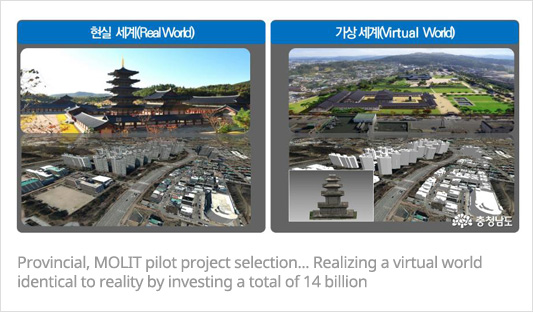
The Digital Twin Land, supervised by the Ministry of Land, Infrastructure, and Transport, is a national location-based platform that implements a virtual world identical to reality in three dimensions for intelligent land management and customized solutions for people's lives.
MOLIT finally selected seven regions, including Chungnam, through written and presentation evaluations by external experts on 25 business plans received for over a month from the end of June.
The provincial government will carry out the 'Digital Twin-based Cultural Heritage Conservation Support System Establishment Project', and will invest a total of 14 billion won (7 million won from the government and 7 million won from the provincial budget) by next year to improve administrative work efficiency using technology and support data-based scientific decision-making. do.
The project cost is planned to be used to build a three-dimensional virtual world of the provincial-designated cultural assets and historical and cultural environment preservation areas, and to develop an administrative service model using them.
In detail, △Support for permit decision-making through simulation of landscape and environmental impact △Support for adjustment of permit standards such as construction activities in the conservation area △Automatic evaluation model for legality of land use around cultural properties.
The provincial government plans to achieve a balance between the preservation and development of cultural properties by examining the impact on cultural properties by reflecting reality as much as possible based on digital twins when granting permission to change the status of cultural properties.
“Digital twin is a key technology for digital transformation of administration,” said Koh Jae-seong, manager of land management.
Source: Geospatial Information Team, Land Management Division, Chungcheongnam-do